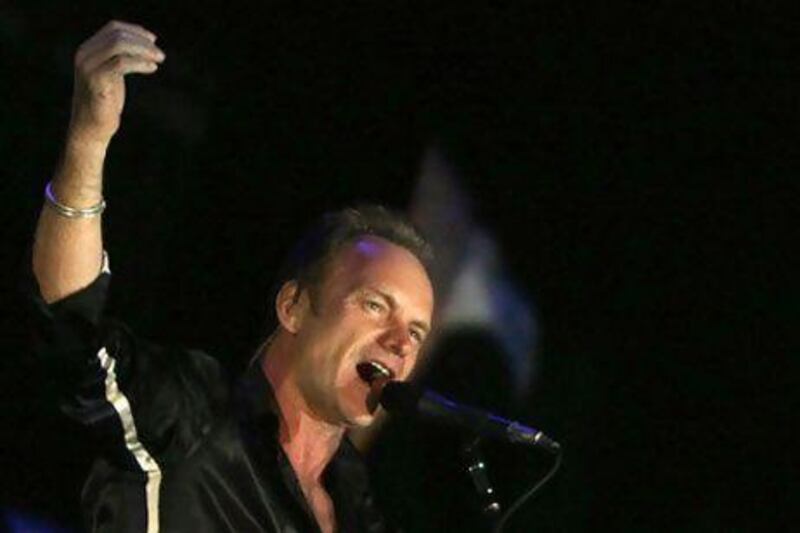The tour
After a series of tours incorporating orchestras and lute players, Sting returns for a more stripped-back approach with his Back to Bass tour. This time around, Sting is backed by a five-piece band of longtime collaborators as they bash out the hits from Sting's solo career as well as from his days with The Police. It's also a more amiable affair, with the normally stony-faced singer reportedly cracking a smile every now and then and indulging in some revealing, between-song banter with the crowd.
The jazz man
He may have successfully dipped in and out of genres including rock, new wave and world music, but Sting's most prevalent musical influence comes from jazz. The Tyneside-born singer's first gigs were performing with local jazz bands including The Newcastle Big Band and the Phoenix Jazzmen. Born Gordon Sumner, Sting got his stage name from the Phoenix Jazzmen's bandleader Gordon Solomon, who thought Sting's sweater made him resemble a bee. The name stuck with him, and he is known to give terse replies to those calling him Gordon.
The Police
He may have been the frontman and main songwriter, but the success of The Police stems from the immediate chemistry Sting shared with the drummer Stewart Copeland and the guitarist Andy Summers. After forming in 1977, the band went on a breathtaking six-year run, releasing five albums and winning six Grammy Awards. While the band always dabbled in reggae, pop and jazz, The Police's success introduced new wave music to the mainstream, as well as giving a certain, future supergroup a helping hand; a relatively little-known REM supported The Police on an American tour. The group's tour calendar was also renowned for taking in non-traditional (at the time) locations, including Mexico, India, Taiwan, Hong Kong, Greece and Egypt. The band ended, rather suddenly to Copeland and Summers, after a 1983 concert at New York's mammoth Shea Stadium. Sting reportedly decided mid-performance to pull the plug since he viewed the venue as the group's Everest. The band reunited in 2007 for a one-year world tour that grossed more than US$350 million (Dh1.3bn) and became the third highest-grossing tour of all time.
The solo career
Sting's solo career dates back to 1981, during his time with The Police, when he began fashioning his own sound with solo song contributions to Amnesty International charity events and film and television programmes. Even from his first solo album, 1985's The Dream of the Blue Turtles, Sting has been fashioning a more esoteric sound than he did with The Police, exploring jazz and world music. However, each album was anchored by a string of highly successful pop numbers and ballads, such as Englishman in New York, Fragile and Desert Rose, the latter a hit collaboration with Algeria's Cheb Mami. Sting's solo career is also marked by pop-experimental albums, including 2003's Sacred Love, featuring collaborations with the hip-hop and R&B artist Mary J Blige and the sitar virtuoso Anoushka Shankar. In 2006, his album Songs from the Labyrinth featured music composed by the Elizabethan English composer John Dowland and the Bosnian lute player Edin Karamazov.
The actor
With a mix of acclaimed and derided turns (Lock, Stock and Two Smoking Barrels and Dune among them), Sting also does a good job of appearing as himself on numerous hit television shows and films, including The Simpsons, The Larry Sanders Show, Ally McBeal and Brüno. Most of Sting's roles are different variations of the insightful tough guy.
Sting plays at du Arena tonight. Doors open at 7pm. Tickets start from Dh295, at www.thinkflash.ae
Follow us
[ @LifeNationalUAE ]






